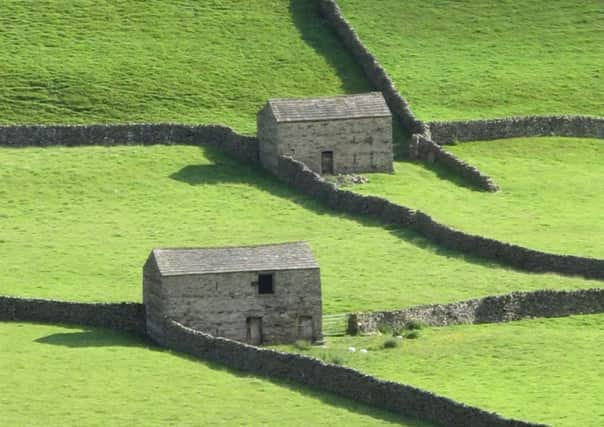Wildlife plea to halt proposed barn rules


The Government is expected to make a decision imminently on proposals which have attracted widespread opposition from the National Park sector.
The open letter to Nick Boles MP was co-ordinated by the Campaign for National Parks and is also signed by all nine of the Friends’ groups who campaign locally to protect and enhance the National Parks of England.
Advertisement
Hide AdAdvertisement
Hide AdSignatories are deeply concerned that uncontrolled development could lead to significant harm to the natural beauty and special qualities of National Parks which contain a high number of redundant agricultural buildings. For example, the Campaign says, there are around 4,500 field barns in the Yorkshire Dales National Park; many of which are in locations where residential use would require “intrusive and unsightly” new access routes and power lines. The letter argues that the new permitted development rights should not be introduced anywhere, but most importantly, not within National Parks.
Anne Robinson, chairman of the Campaign for National Parks, said the proposals undermine the Government’s existing commitments to protect National Parks and could lead to pockets of suburbia in areas loved for their open space, natural beauty and tranquillity.
“We recognise that National Parks are living, working landscapes and fully support the appropriate change of use of old buildings but it is essential that this happens in a managed way through the planning system.
“This proposal is also contrary to the Government’s support for localism as it undermines the policies which National Park Authorities have developed in consultation with their local communities.”
Advertisement
Hide AdAdvertisement
Hide AdThe letter also highlights the potential impact on wildlife. Many redundant agricultural buildings, including modern structures, are home to wildlife such as bats, which are protected under the Wildlife and Countryside Act 1981. The proposed changes will remove the ability of National Park Authorities to alert those undertaking conversions to the requirements of this Act so that they can undertake wildlife surveys where appropriate, the Campaign says.
The Department for Communities and Local Government did not confirm when Mr Boles was planning to announce his decision of whether to introduce the new rules but a spokesman said: “We are carefully considering all the representations to this consultation, from farmers, to country business, to the National Park authorities.
“Our goal is to help bring redundant and empty buildings back into productive use, whilst protecting the openness of the countryside and our National Parks. Reusing rundown buildings is potentially a good way of providing more rural housing, and still safeguard England’s beautiful landscape.”
A case for new homes
The proposals may be proving divisive but there is clearly a need for new housing in the countryside, the Country Land and Business Association (CLA) says.
Advertisement
Hide AdAdvertisement
Hide AdIn a new report, the organisation calls for more retirement homes to be built to enable people to pass on farm holdings to a younger generation and help clear the “tenancy logjam” that is hampering the industry’s future. There is an estimated shortfall of housing supply of some 230,000 homes a year and it is “blighting a generation”, the CLA says.